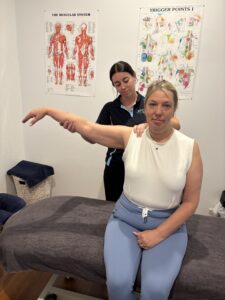Exploring Innovation: A Journey Through TU Delft’s Research Highlights
Delft University of Technology (TU Delft) is a global leader in research and innovation, with a long-standing commitment to solving the world’s most pressing challenges. From renewable energy and sustainable urban planning to cutting-edge advancements in artificial intelligence and biomedical engineering, TU Delft has made remarkable contributions that resonate far beyond its campus in the Netherlands. The university’s research highlights not only demonstrate its dedication to academic excellence but also its ability to create meaningful, real-world impact.
This article takes a journey through some of the most significant research initiatives and breakthroughs at Delft University of Technology, showcasing the innovative spirit that drives the institution forward.
A Legacy of Innovation and Interdisciplinary Research
Founded in 1842, Delft University of Technology has grown into one of Europe’s most prestigious technical universities. Its reputation for research excellence is rooted in a strong tradition of interdisciplinary collaboration, bringing together experts from diverse fields to tackle complex global issues. TU Delft’s research focuses on sustainability, technological advancement, and improving quality of life, with projects spanning engineering, natural sciences, and social sciences.
The university’s strategic partnerships with industry leaders, governments, and international organizations further amplify its global impact. These collaborations ensure that research at TU Delft transitions from laboratories to practical applications, benefitting communities worldwide.
Research Highlights at TU Delft
1. Pioneering Renewable Energy Solutions
Sustainability lies at the heart of TU Delft’s research agenda, particularly in the realm of renewable energy.
- Offshore Wind Energy: TU Delft is at the forefront of offshore wind energy innovation. Researchers have developed more efficient turbine designs and advanced simulation tools to optimize wind farm layouts. These innovations are contributing to Europe’s ambitious goal of achieving carbon neutrality by 2050.
- Photovoltaic Materials: The university’s research in solar energy has led to breakthroughs in photovoltaic materials, such as perovskite solar cells, which offer higher efficiency and lower production costs.
- Energy Storage: TU Delft is addressing one of renewable energy’s biggest challenges: energy storage. Projects focusing on battery technology and hydrogen storage systems are paving the way for a more reliable and sustainable energy grid.
These advancements underscore TU Delft’s commitment to combating climate change and supporting the global transition to clean energy.
2. Advancements in Urban Development and Infrastructure
As urbanization accelerates, cities face growing challenges related to transportation, housing, and sustainability. TU Delft’s research in urban development is shaping the future of cities worldwide.
- Smart Cities: Researchers at TU Delft are leveraging digital technologies such as the Internet of Things (IoT) and artificial intelligence (AI) to create smarter, more efficient urban environments. From traffic management systems to energy-efficient buildings, these innovations are improving urban living conditions.
- Resilient Infrastructure: The university’s work on earthquake-resistant structures and flood-proof designs is helping cities adapt to the impacts of climate change and natural disasters.
- Circular Construction: TU Delft is leading the way in circular construction practices, promoting the reuse and recycling of building materials to reduce waste and environmental impact.
By addressing these critical issues, TU Delft is helping cities around the world become more sustainable and resilient.
3. Cutting-Edge Robotics and Artificial Intelligence
TU Delft is a global hub for robotics and AI research, with applications spanning healthcare, industry, and environmental monitoring.
- Healthcare Robotics: TU Delft’s research in assistive robotics is improving the quality of life for elderly and disabled individuals. Robots designed for rehabilitation and daily assistance are helping patients regain independence.
- Autonomous Systems: The university’s work on autonomous vehicles and drones is revolutionizing transportation and logistics. TU Delft researchers are addressing challenges related to navigation, safety, and urban integration.
- AI for Sustainability: Researchers are applying AI to optimize resource use, predict environmental changes, and enhance conservation efforts. AI-driven tools developed at TU Delft are helping organizations make data-informed decisions to reduce their ecological footprint.
These advancements highlight TU Delft’s role in shaping the future of robotics and AI, ensuring that these technologies serve society in meaningful ways.
4. Revolutionary Water Management Research
Water management is a critical area of expertise at Delft University of Technology, particularly given the Netherlands’ history of dealing with flooding. TU Delft’s research in hydraulic engineering and water management has had a transformative impact globally.
- Flood Risk Reduction: Projects like “Room for the River” showcase TU Delft’s innovative approach to flood management. By creating space for rivers to expand naturally, the university is reducing flood risks while enhancing biodiversity.
- Sustainable Water Systems: TU Delft is working on advanced water purification technologies, ensuring access to clean water for underserved communities worldwide.
- Coastal Resilience: The university’s research on coastal engineering, including sand nourishment and dike reinforcement, is helping protect vulnerable coastal regions from rising sea levels.
These efforts not only address local challenges but also serve as models for water management strategies worldwide.
5. Breakthroughs in Biomedical Engineering
Healthcare innovation is another area where TU Delft excels, with research focused on improving diagnostics, treatments, and patient care.
- Tissue Engineering: TU Delft researchers are developing artificial tissues and 3D-printed scaffolds for regenerative medicine. These technologies have the potential to revolutionize organ transplantation and wound healing.
- Wearable Health Devices: The university is advancing wearable technologies for real-time health monitoring, enabling early detection of diseases and better management of chronic conditions.
- Rapid Diagnostics: TU Delft’s innovations in diagnostics are improving the speed and accuracy of disease detection, particularly for infectious diseases like COVID-19.
By combining engineering expertise with medical science, TU Delft is driving significant advancements in healthcare.
6. Innovations in Sustainable Transportation
As the world seeks to reduce its reliance on fossil fuels, TU Delft is playing a pivotal role in developing sustainable transportation solutions.
- Electric Vehicles (EVs): Research at TU Delft focuses on improving EV battery technology, extending range, and reducing charging times. These advancements are making electric vehicles more accessible and practical.
- Hyperloop Development: TU Delft’s Hyperloop team is a global leader in the development of this futuristic transportation system, which promises ultra-fast, energy-efficient travel.
- Smart Mobility: Projects on autonomous vehicles, shared mobility systems, and green public transport are helping cities transition to more sustainable transportation networks.
These innovations demonstrate TU Delft’s commitment to shaping the future of mobility.
Global Collaborations and Partnerships
The impact of Delft University of Technology’s research is amplified through its collaborations with international partners.
- Academic Networks: TU Delft collaborates with leading institutions such as MIT, ETH Zurich, and Imperial College London to share knowledge and resources.
- Industry Partnerships: The university works closely with companies like Shell, Philips, and Unilever, ensuring that its research has practical applications.
- Humanitarian Projects: TU Delft is involved in initiatives that provide low-cost housing, clean water, and renewable energy solutions to underserved communities worldwide.
These partnerships enhance the global relevance and reach of TU Delft’s research.
The Future of Innovation at TU Delft
As global challenges evolve, Delft University of Technology remains committed to pushing the boundaries of research and innovation. Future areas of focus include:
- Climate Adaptation: Developing technologies to help communities adapt to the impacts of climate change, such as rising sea levels and extreme weather events.
- Circular Economy: Promoting sustainable resource use and waste reduction through innovative recycling technologies and material design.
- Space Exploration: Advancing research in aerospace engineering to support sustainable space exploration and Earth monitoring systems.
These forward-looking initiatives reflect TU Delft’s dedication to creating a better, more sustainable future.
Conclusion
Delft University of Technology’s research highlights showcase the institution’s unwavering commitment to innovation and societal progress. From renewable energy and urban development to robotics and healthcare, TU Delft’s projects are transforming industries and improving lives around the world.
Through its interdisciplinary approach, collaborative partnerships, and focus on real-world applications, TU Delft continues to set the standard for research excellence. As the university drives innovation in emerging fields, its global impact will only grow, cementing its reputation as a leader in science and technology.














Post Comment